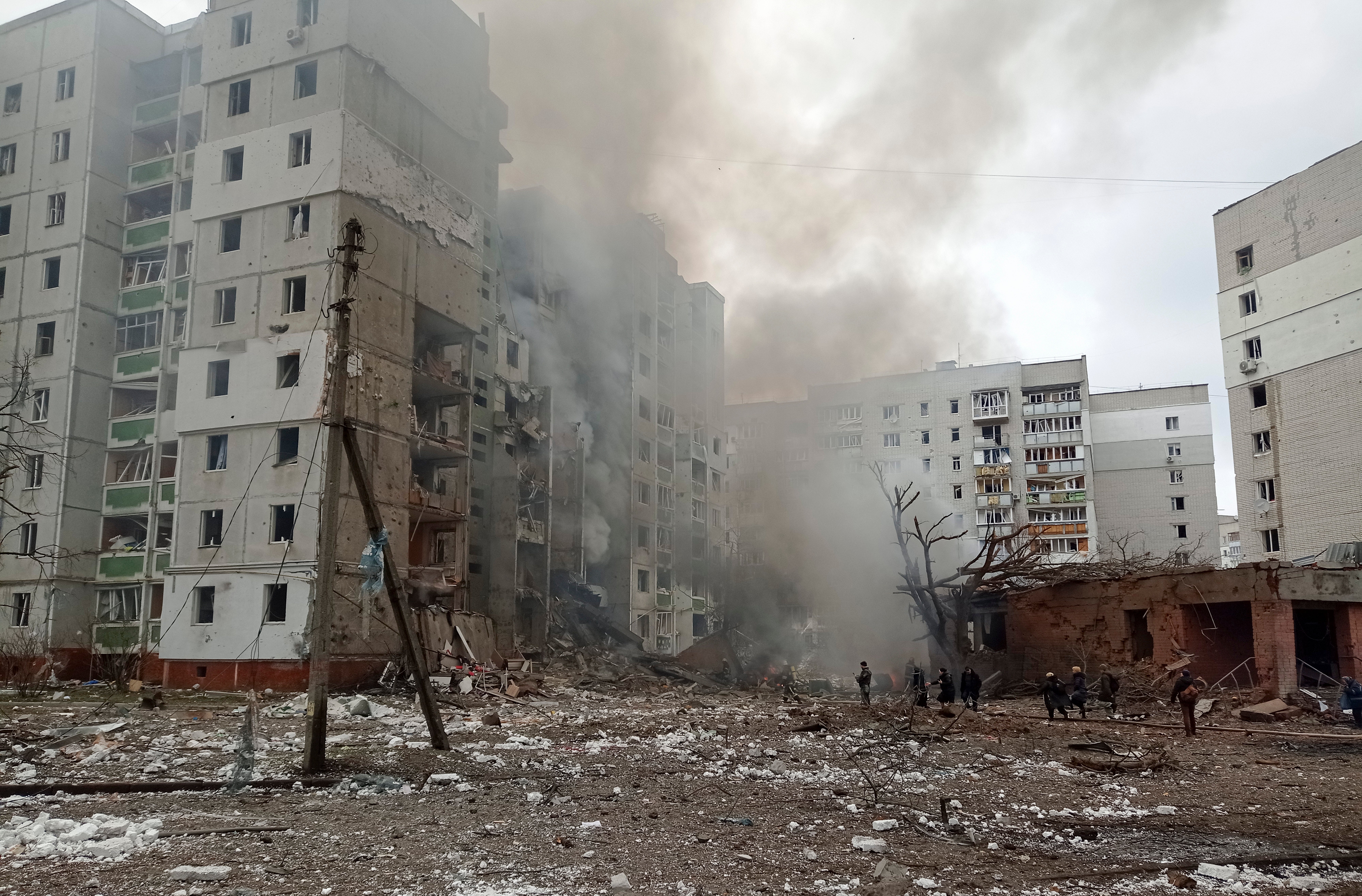Nato and EU ministers in crisis meetings over war in Ukraine
Foreign Secretary Liz Truss will join Nato counterparts for talks in Brussels.

Western ministers will hold crisis talks as Vladimir Putin steps up his assault on Ukraine’s cities.
Liz Truss will join fellow foreign ministers from Nato and the European Union for a series of meetings in Brussels as the allies show their support for Ukraine.
Meanwhile Home Secretary Priti Patel is visiting Poland’s border with Ukraine to highlight the visas on offer to those fleeing the conflict who have relations in Britain.
For the first time since Brexit, Foreign Secretary Ms Truss will attend the EU’s Foreign Affairs Council, as a special guest along with counterparts from the US, Canada and Ukraine.
She will also attend a special meeting of Nato foreign ministers and hold talks with counterparts from the G7 group.
Ms Truss said it was “one of the biggest days of diplomacy” with allies prepared to “tighten the vice around Putin’s war machine” by targeting the Russian economy with sanctions.
The West fears the Russian president will unleash an overwhelming assault on Ukraine’s major cities, potentially inflicting devastating civilian casualties.
French President Emmanuel Macron spoke to Mr Putin on Thursday but said “he refuses to stop his attacks on Ukraine at this point”.
The Russian president warned Ukraine that it must quickly accept the Kremlin’s demand for its “demilitarisation” and declare itself neutral, renouncing its bid to join Nato.
Peace talks between the two sides have so far failed to end the hostilities, although there is hope for humanitarian corridors to allow civilians to escape.
The port city of Kherson became the first major city to fall since the invasion began, while there was heavy fighting for control of Enerhodar, the site of Europe’s biggest nuclear plant.
Russian troops were accused of shelling the facility, with the plant’s spokesman Andriy Tuz warning there was a “real threat of nuclear danger”.
Russian forces continued pressing on multiple fronts, but a long column of tanks has apparently been stalled outside the capital Kyiv for days.
At least 33 civilians were killed and 18 wounded in a strike on a residential area in the northern city of Chernihiv, Ukraine said.
Mr Putin’s forces have fired more than 480 missiles in the invasion, according to a US defence official.
Western allies have responded to the ongoing violence with increased sanctions.
Russian billionaire Alisher Usmanov, who has had ties to Arsenal and Everton football clubs, was sanctioned by the UK and US.
A travel ban and full asset freeze was also imposed on former Russian deputy prime minister Igor Shuvalov on Thursday evening, taking the total number of oligarchs sanctioned by the UK to 15.
Boris Johnson said: “For as long as Putin continues his barbaric attack on innocent Ukrainians we will continue to exert every power we have to inflict maximum economic pain on Putin and his war machine.”
But Roman Abramovich, who says he will sell Chelsea FC, was not among the latest tranche of sanctioned oligarchs.
Government sources conceded it could take “weeks and months” to build legally sound cases against wealthy and litigious targets.
Meanwhile the exodus from Ukraine continued, with UN refugee agency figures showing more than a million people have fled the country, a figure which could rise to four million as the war rages on.
The Home Secretary will travel to Medyka on Poland’s border with Ukraine to see the situation for herself.
Ahead of the visit she said: “The British Government will do everything it can to support the Ukrainian people at this critical moment as they fight for freedom.”
The Ukraine family scheme will allow Britons or people settled in the UK to bring their relatives to safety in Britain.
But the Government has faced calls to go further in opening up routes for Ukrainians to come to the UK.
Bookmark popover
Removed from bookmarks